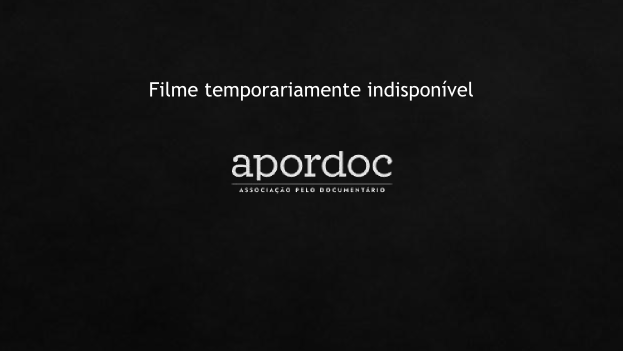
CARP
Realizador Fritz Polzer
Países Germany
Duração 12 min
Sinopse
CARP is a fantasia on themes of civic engagement, a somewhat sarcastic and experimental triptych with musical postscript using found written sources [a tract warning newcomers off participating in communal gardening and living in fast-gentrifying Neukölln, a website devoted to Berlin-Tegel airport enthusiasts arguing for its maintenance in the face of the impending opening of the new suburban Berlin Brandenburg, an article in the German tabloid BILD about the shooting of a naked man this past summer in the Neptune Fountain in front of city hall], voice over, a metaphorical carp swimming in the Flughafensee which abuts Berlin Tegel airport, and a background of Berlin-themed songs from the aftermath of two world wars, inflicted upon the world from that city.The themes are all of particular salience to the Berlin of now, a city much vaunted for its blend of liberalism and hedonism, a mystique earned through ages of being on the frontlines of powerful manias. Thus, in its layout, CARP is easily a 'local' film, its very specificity however explodes its insular dynamics to a wider approach to how we agree as a society to live together, what we choose to fight for, and what and where the battlegrounds are. CARP is an experience of another worldliness, one in which the shrunken world is shown to potentially be not smaller in a physical but in a mental sense. The found texts and pamphlets are read out and re-enacted by actors’ voices and accompany the images from the place they were found at or to which they refer, in an effort to connect the political activity to its physical source, where the impact would be felt. Finally the film resolves in Brecht’s “Zu Potsdam unter den Eichen”, a song that expressed the disappointment of WWI veterans in the early twenties in Berlin, who all have been promised a safe livelihood which has not been delivered. Throughout CARP, melodies are sped up and slowed down, played backwards and forward, evoking the pre-WWII image of Berlin and its rich tradition of political cabaret. In the conclusion, a golden Japanese Koi reappears in the Flughafensee, one of CARP’s three battlegrounds. In Eastern mythology, Koi signify perseverance, tenacity, ambition and advancement, and are supposed to, when caught, lie still on the chopping block without resisting fate. This symbol abrades against the struggles proposed earlier in the film, supported by the biting satire of Brecht and Weill, whose every warrior has a home – in the grave. The question here is both for the fish and for the pamphleteers: what is really worth fighting for? And is to carp to fight or merely to moan?
CARP is a fantasia on themes of civic engagement, a somewhat sarcastic and experimental triptych with musical postscript using found written sources [a tract warning newcomers off participating in communal gardening and living in fast-gentrifying Neukölln, a website devoted to Berlin-Tegel airport enthusiasts arguing for its maintenance in the face of the impending opening of the new suburban Berlin Brandenburg, an article in the German tabloid BILD about the shooting of a naked man this past summer in the Neptune Fountain in front of city hall], voice over, a metaphorical carp swimming in the Flughafensee which abuts Berlin Tegel airport, and a background of Berlin-themed songs from the aftermath of two world wars, inflicted upon the world from that city.The themes are all of particular salience to the Berlin of now, a city much vaunted for its blend of liberalism and hedonism, a mystique earned through ages of being on the frontlines of powerful manias. Thus, in its layout, CARP is easily a 'local' film, its very specificity however explodes its insular dynamics to a wider approach to how we agree as a society to live together, what we choose to fight for, and what and where the battlegrounds are. CARP is an experience of another worldliness, one in which the shrunken world is shown to potentially be not smaller in a physical but in a mental sense. The found texts and pamphlets are read out and re-enacted by actors’ voices and accompany the images from the place they were found at or to which they refer, in an effort to connect the political activity to its physical source, where the impact would be felt. Finally the film resolves in Brecht’s “Zu Potsdam unter den Eichen”, a song that expressed the disappointment of WWI veterans in the early twenties in Berlin, who all have been promised a safe livelihood which has not been delivered. Throughout CARP, melodies are sped up and slowed down, played backwards and forward, evoking the pre-WWII image of Berlin and its rich tradition of political cabaret. In the conclusion, a golden Japanese Koi reappears in the Flughafensee, one of CARP’s three battlegrounds. In Eastern mythology, Koi signify perseverance, tenacity, ambition and advancement, and are supposed to, when caught, lie still on the chopping block without resisting fate. This symbol abrades against the struggles proposed earlier in the film, supported by the biting satire of Brecht and Weill, whose every warrior has a home – in the grave. The question here is both for the fish and for the pamphleteers: what is really worth fighting for? And is to carp to fight or merely to moan?